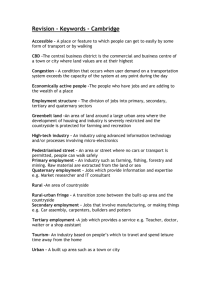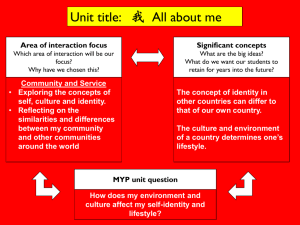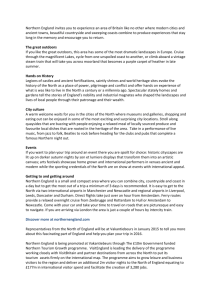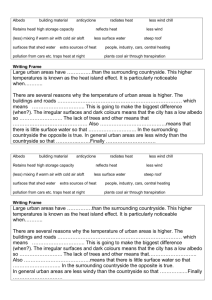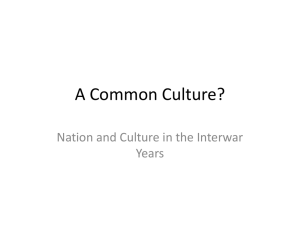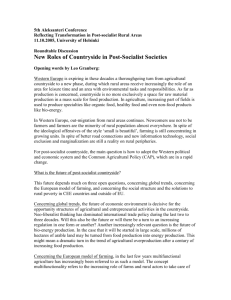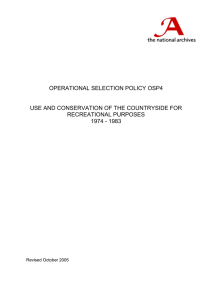Viewpoint - Newcastle University Staff Publishing
advertisement
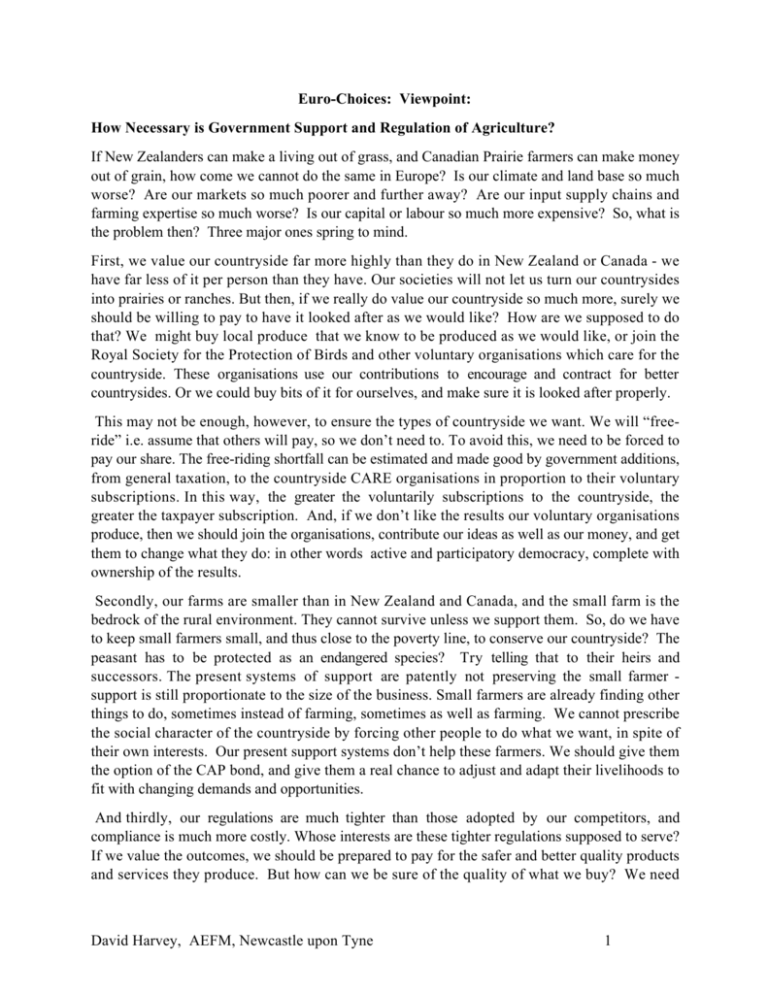
Euro-Choices: Viewpoint: How Necessary is Government Support and Regulation of Agriculture? If New Zealanders can make a living out of grass, and Canadian Prairie farmers can make money out of grain, how come we cannot do the same in Europe? Is our climate and land base so much worse? Are our markets so much poorer and further away? Are our input supply chains and farming expertise so much worse? Is our capital or labour so much more expensive? So, what is the problem then? Three major ones spring to mind. First, we value our countryside far more highly than they do in New Zealand or Canada - we have far less of it per person than they have. Our societies will not let us turn our countrysides into prairies or ranches. But then, if we really do value our countryside so much more, surely we should be willing to pay to have it looked after as we would like? How are we supposed to do that? We might buy local produce that we know to be produced as we would like, or join the Royal Society for the Protection of Birds and other voluntary organisations which care for the countryside. These organisations use our contributions to encourage and contract for better countrysides. Or we could buy bits of it for ourselves, and make sure it is looked after properly. This may not be enough, however, to ensure the types of countryside we want. We will “freeride” i.e. assume that others will pay, so we don’t need to. To avoid this, we need to be forced to pay our share. The free-riding shortfall can be estimated and made good by government additions, from general taxation, to the countryside CARE organisations in proportion to their voluntary subscriptions. In this way, the greater the voluntarily subscriptions to the countryside, the greater the taxpayer subscription. And, if we don’t like the results our voluntary organisations produce, then we should join the organisations, contribute our ideas as well as our money, and get them to change what they do: in other words active and participatory democracy, complete with ownership of the results. Secondly, our farms are smaller than in New Zealand and Canada, and the small farm is the bedrock of the rural environment. They cannot survive unless we support them. So, do we have to keep small farmers small, and thus close to the poverty line, to conserve our countryside? The peasant has to be protected as an endangered species? Try telling that to their heirs and successors. The present systems of support are patently not preserving the small farmer support is still proportionate to the size of the business. Small farmers are already finding other things to do, sometimes instead of farming, sometimes as well as farming. We cannot prescribe the social character of the countryside by forcing other people to do what we want, in spite of their own interests. Our present support systems don’t help these farmers. We should give them the option of the CAP bond, and give them a real chance to adjust and adapt their livelihoods to fit with changing demands and opportunities. And thirdly, our regulations are much tighter than those adopted by our competitors, and compliance is much more costly. Whose interests are these tighter regulations supposed to serve? If we value the outcomes, we should be prepared to pay for the safer and better quality products and services they produce. But how can we be sure of the quality of what we buy? We need David Harvey, AEFM, Newcastle upon Tyne 1 Euro-Choices: Viewpoint: access to independent authorities to check information on the labels, test our assumptions and confirm our trust. And we could provide these services through charitable trusts, such as the Consumers Association, funded on the same basis as the CARE organisations, for the same reasons. But we do not have enough of these charitable trusts. Of course not. If we assume government is doing this job for us, why should we bother? And, of course, if we suppose that regulation and protection are free goods, we will naturally demand far too much. And if we continue to rely on governments, who have no real livelihood interest in either demand or supply, we should expect them to get the answer wrong more often than right. Isn’t it time to get government out of farming and substitue some genuine and caring governance instead? Professor David Harvey, Department of Agricultural Economics and Food Marketing, The University of Newcastle upon Tyne NE1 7RU David Harvey, AEFM, Newcastle upon Tyne 2
